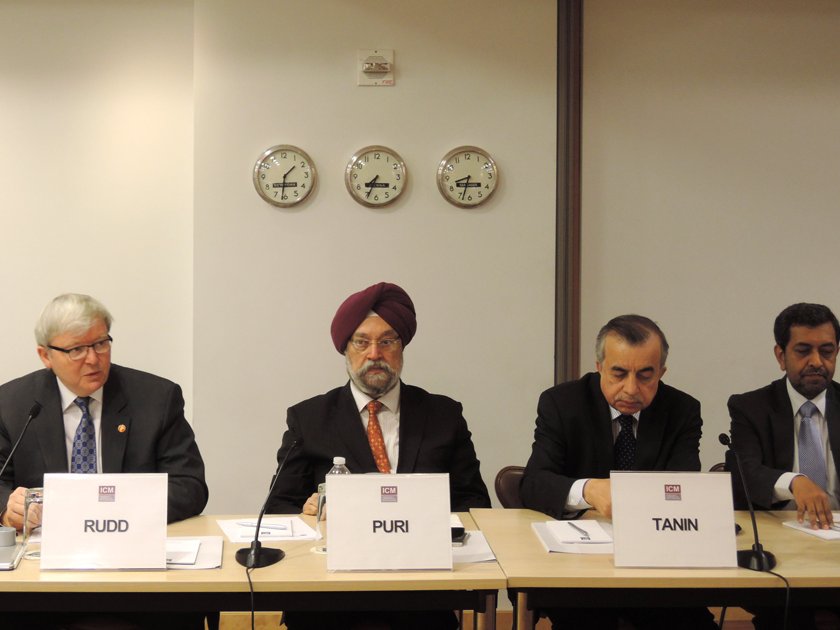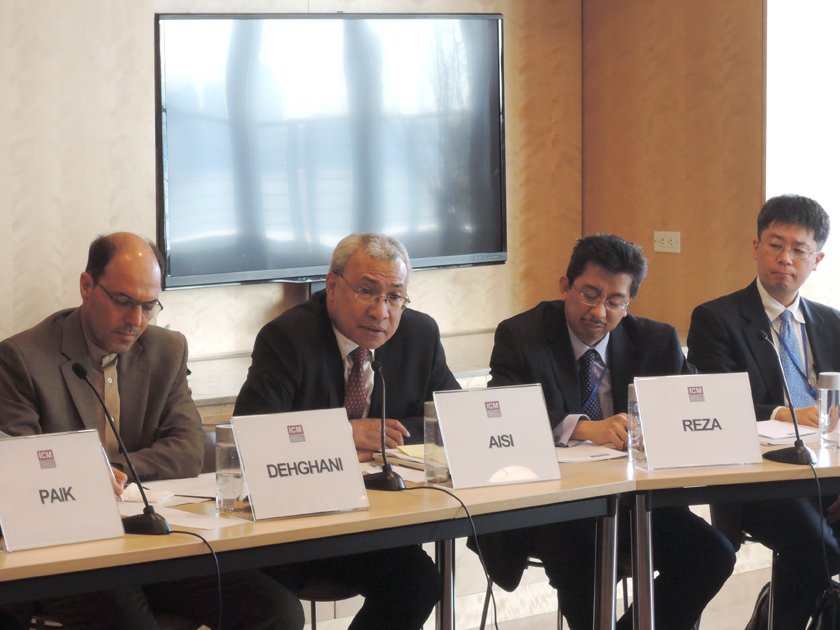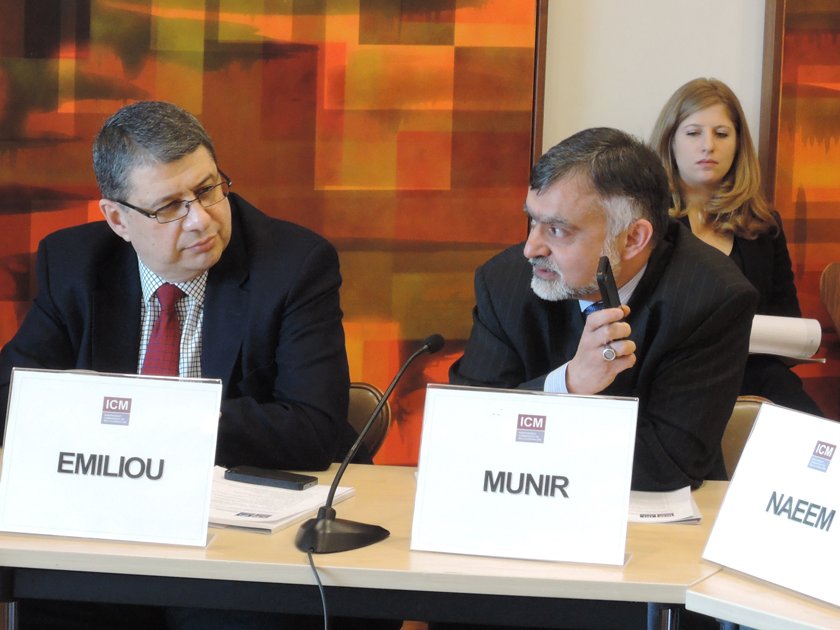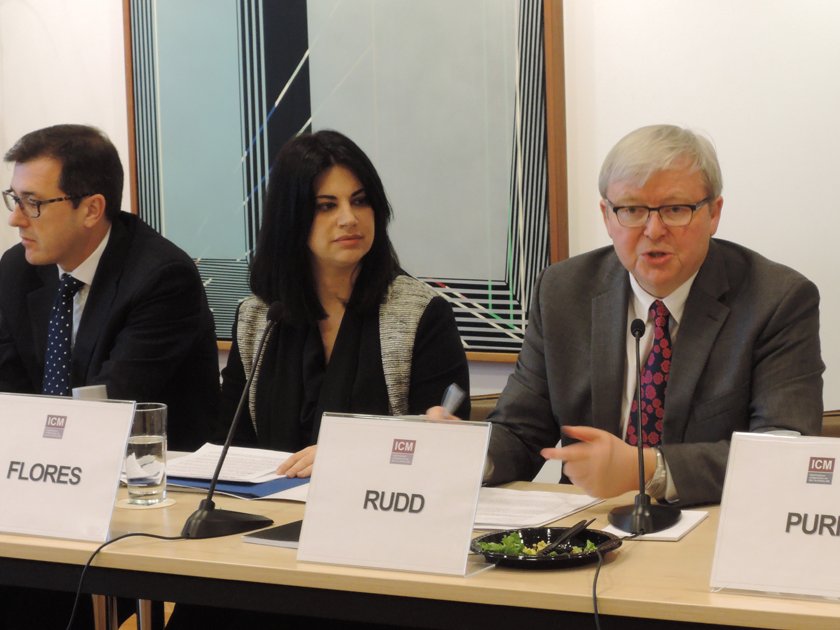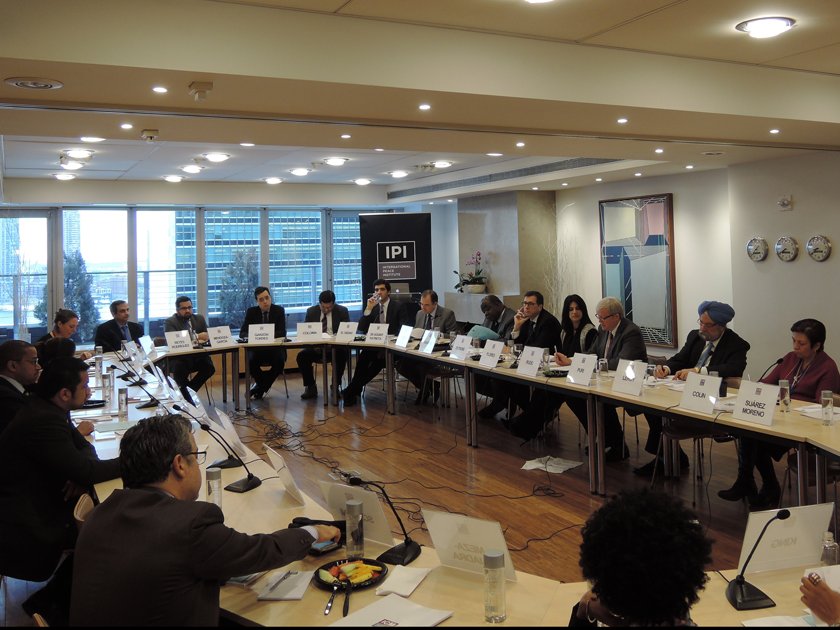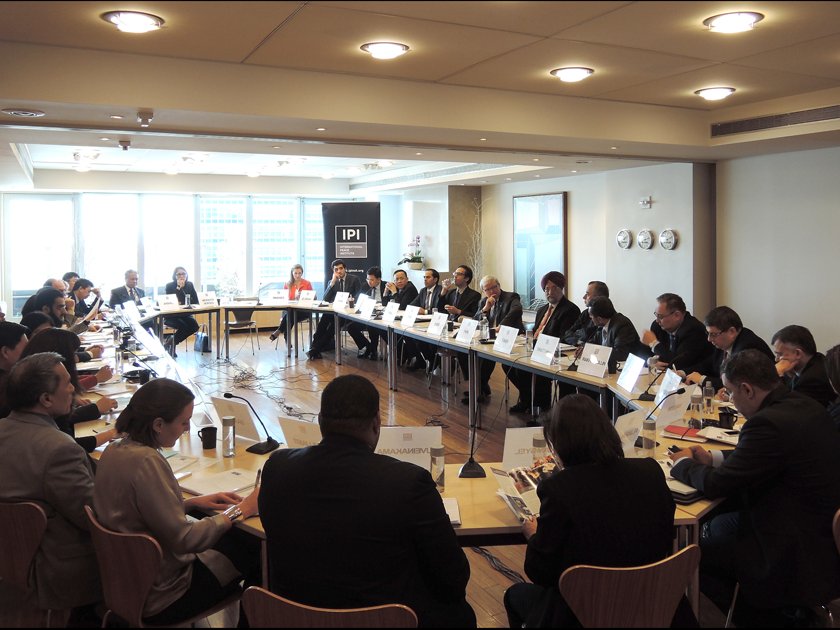“In seeking the inputs of member states… our aim is to hear your concrete practical ideas about how the system can be made better,” said Mr. Rudd during the briefings, referring to the multilateral system embodied by the United Nations. “We want to build this institution for the future, to make it fit for future purposes as much as possible.”
The ICM—an international undertaking housed at the International Peace Institute—will, over the next two years, gather input from experts, governments, civil society, and the private sector and will culminate in a final report to be presented by the end of 2016. The report will include practical recommendations aimed at bolstering the existing multilateral system and equipping it with the right tools to confront the threats and challenges of the 21st century.
“Every ten years or so, the UN system should take a good look at itself,” said Mr. Puri. “And the most valuable part of this exercise is the involvement of member states who are actually the prime stakeholders in the process.”
The two briefings were the first in a series of consultations the ICM will hold over the next few weeks with delegates and representatives from the UN’s regional groups. The goal is to engage with UN member states and inform them on the ICM, at the same time receiving feedback and suggestions on the project.
“The project is intended to be practical,” said Mr. Rudd, “and we intend to be fully consultative, fully transparent, and fully independent.” Indeed, while the ICM will look very closely at the UN system and its effectiveness, it will be entirely separate from it. This, Mr. Rudd said, will ensure the balance and fairness of the recommendations.
Mr. Rudd said that the practicality of the Commission’s work is rooted in its objective. “We don’t intend to create a perfect order,” he said. “That is pointless. Rather, we hope to make appropriate recommendations to improve the effectiveness of the system as it is.”
Mr. Rudd also said that the project will see the Commission travelling to world capitals to brief governments about the work of the ICM. “We wish to hear on a continuing basis from the member states themselves about their joys and frustrations with the United Nations,” he said.
Consultations with the African, Eastern European, and Western European & Others regional groups are scheduled for later this month.

